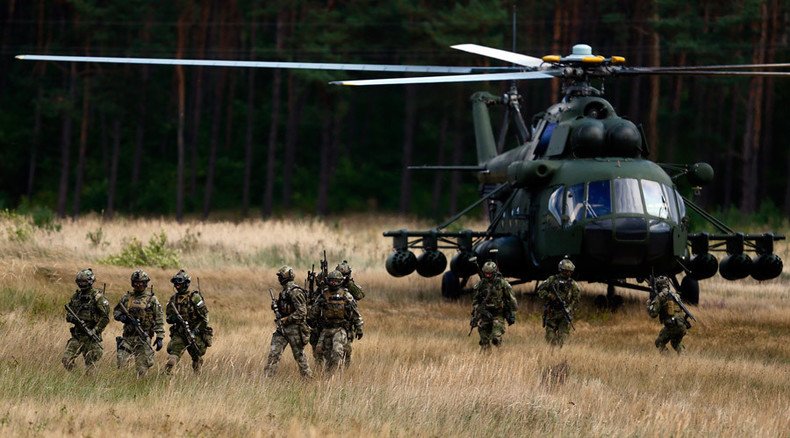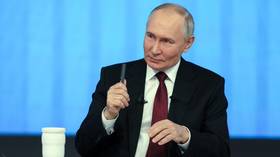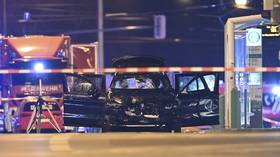US launches biggest NATO airborne drills since Cold War to ‘enhance security & stability’ in Europe

The US military has launched the largest NATO airborne drills in Europe since the end of the Cold War, to enhance “security and stability” in the region. The war games, closely watched by the Russian military, are an attempt to raise tensions in the wake of alleged “Russian aggression,” Moscow believes.
About 5,000 soldiers from 11 NATO member states are participating in the "simultaneous multinational airborne operations" which had started last week and would last for almost a month, the US army said in a statement.
“Swift Response 15 is the largest Allied airborne training event on the continent since the end of the Cold War,” the statement says.
The US military claims the drills are aimed at helping allied “high-readiness forces” to act as one and to “demonstrate the alliance's capacity to rapidly deploy and operate in support of maintaining a strong and secure Europe.”
#NATO Allies start largest airborne exercise in decades: #SwiftResponsehttp://t.co/v8Nit6SHEDpic.twitter.com/8MOSWlkNHT
— Jay Janzen (@Jay_Janzen) August 19, 2015The exercises will end on September, 13 with the high point on August, 26 when NATO airplanes will drop more than 1,000 paratroopers at Hohenfels training area in Germany. However, after a short break NATO is set to stage another major exercise, Trident Juncture 2015, which is to take place in Spain, Italy and Portugal late September.
READ MORE: Rebels, Kiev forces using heavy weapons at contact line – OSCE mission head in E. Ukraine
The drills are being conducted along with escalation of the conflict in the eastern Ukraine, for which NATO and western politicians repeatedly blamed Moscow. The alliance deputy spokesperson claimed last week that NATO did not seek confrontation but failed to build a “cooperative relationship” with Russia.
“NATO military exercises are intended to enhance security and stability in Europe. All NATO military activities are proportionate, defensive, and fully in line with our international commitments,’’ the statement read.
At the same time the alliance, insistently moving its military infrastructure towards the Russian borders, claimed that Moscow’s “unpredictable and surprise military maneuvers contribute to instability.”
READ MORE: ‘We don't want to be a mere buffer zone’: New Polish president calls for more NATO troops
The largest NATO drills since the Cold War will certainly send the world a “vibrant signal about the alliance’s peacefulness,” the head of the Russian State Duma Committee for International Relations Aleksey Pushkov said ironically. His colleague Vice Speaker Nikolay Levichev believes the mass drills will have no positive effect for Europe besides providing tourists in Hohenfels a “good background for selfies.”
Meanwhile the British think tank European Leadership network published a report last week called “Preparing for the worst: are Russian and NATO military exercises making war in Europe more likely?”
In the study the researcher emphasized that in this year both Russia and NATO has already conducted large-scale drills with 80,000 and 15,000 participating troops respectively. The report advised that the sides “increase NATO – Russia communication with regards to the schedule of exercise” utilizing OSCE channels as much as possible.
But when Russia’s partners impose the Cold War logic on international diplomacy and threaten with the Third World War, State Duma Speaker Sergey Naryshkin said last month, it is important to remember that such conflict would be the last in human history.
“Strengthening of Russia’s defense potential, including the budgetary decisions passed by the State Duma is done only for one purpose, which is to prevent the war,” he said.
READ MORE: ‘Third World War would be last for humanity’ – Duma speaker
The Russian military is “closely monitoring” the situation and is ready to react in case of any aggression, said a member of the Russian Duma’s defense committee Franz Klintsevich. So far, he added, Moscow has been patiently and diplomatically reacting to all of the Western claims of “Russian aggression” and increased NATO forces’ buildup, but has demonstrated that it will adamantly defend the safety of Russian citizens.












